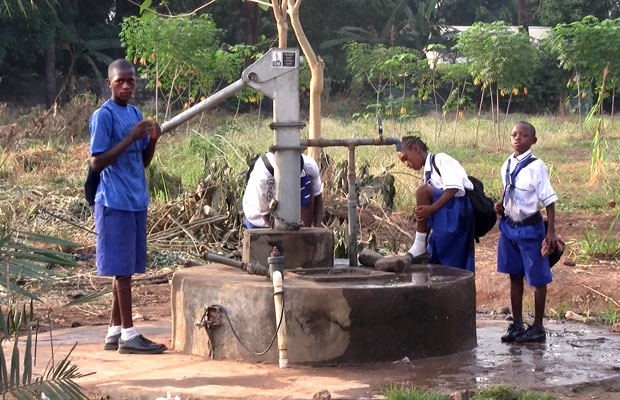
Addressing the Global Water Crisis
Here in the developed world, we take water for granted. Readily available from municipal pipes or backyard wells, we drink it, bathe in it, and brush our teeth in it — all without fear of becoming ill. Unfortunately, for 783 million people around the globe without access to a clean water source, water-borne sickness is an ever-present threat — and children are the most vulnerable.
“Poor children have the least access to safe water and adequate sanitation, and they pay the highest price,” says Anthony Lake, UNICEF’s executive director.
Sadly, in impoverished communities around the globe, countless innocent boys and girls pay for unsafe water with their lives. Diarrhea is the second-leading cause of death for children under five in the world. More than 2,000 children die each day from water-borne illnesses such as dysentery, cholera and typhoid fever. Including adults, the clean water and sanitation crisis claims more lives than any war has claimed through guns, according to the United Nations.
Globally, an estimated 2.5 billion people (35 percent of the world’s population) do not have access to adequate sanitation Women spend 200 million hours a day, combined, in search of water. Women and children in the poorest places on the planet bear the primary responsibility for water collection — often walking for hours each day, only to find contaminated water that seriously sickens those who consume it. Girls and boys who are fortunate enough to escape illness fall further and further behind in school as they spend more time searching for distant wells. In fact, the United Nations estimates that 443 million school days are lost each year to water-related issues.
“Water is essential for life,” says Fr. Mark Hyde, director of Salesian Missions. “Not having clean water is also inextricably linked to poverty and poor well-being. It’s therefore critical that we create sustainable models for delivering clean water to communities that lack it — or the health, food security and future of its people are at serious risk.”
In more than 130 countries around the globe, Salesian missionaries have prioritized water projects in communities in which they serve — a priority that will remain in sharp focus until the global water crisis is conquered.
Salesian missionaries are committed to ensuring that every child, and every adult, has an accessible, dependable and local source of clean water for drinking and growing food crops on which they depend. To accomplish this, they lead many projects, such as:
- digging wells and installing pumps
- building water towers and establishing rainwater collection systems
- constructing water-powered electric plants and developing efficient sanitation methods
- providing sanitation tablets and soap to victims of disaster and instructing children in effective hand-washing
“Beyond simply providing access to water and sanitation, we also teach community members how to manage and maintain these new systems,” says Fr. Hyde. “In this way, we ensure the long-term viability of the water source, as well as impart new skills that contribute to community vitality.”
Our mission brings clean water to those who desperately need it — improving the health, food security and economic opportunity of impoverished children and adults around the globe.
What’s your mission? We invite you to find your mission by joining us.

